Buy or gift a stand-alone digital subscription and get unlimited access to dozens of back issues for just £18.99 / $18.99 a year.
Please register at www.exacteditions.com/digital/cornucopia with your subscriber account number or contact subscriptions@cornucopia.net
Buy a digital subscription Go to the Digital EditionAbdülhamid II amazed his subjects by retreating behind high walls on a hilltop above Beşiktaş, taking his court and government with him. Here he created a city within a palace – in part with his own hands. In a two-part feature, Berrin Torolsan tells the story of the palace, its park and its guesthouse. Photographs by Fritz von der Schulenburg
On April 7, 1877, Abdülhamid II moved, lock, stock and barrel, up from the vulnerable waterside Dolmabahçe to Yıldız, on the heights above Beşiktaş, where his uncle Abdülaziz had built one of his many palaces. It had an exuberant Neoclassical reception hall with marble fountains and crystal banisters, and was surrounded by woods dotted with pavilions. Abdülhamid restored all these, but he was also his own man, transforming Yıldız in modest style.
A prolific builder, he added annexes and offices, a theatre, pharmacy, imperial museum and art gallery, a school, a library with an observatory, apartments for retired harem ladies, a carpentry workshop next to his hamam, a porcelain factory, even a zoo. Gone were the pomp and circumstance of the mid-19th century. This was a sultan who drove his own carriage to the mosque on Friday.
Two main areas are now open to the public: the Yıldız Palace Museum (part of the palace itself, closed Tues) and Yıldız Park (open daily, dawn to dusk), which includes the Şale Köşkü (Chalet Kiosk) used by the Kaiser (following pages). Although next to each other, they must be explored separately as there is no access between them. (It is worth taking a taxi between the two as walking can take up to an hour.)…
Üsküdar – its history shaped by three powerful queen mothers and a tireless English nurse – has surprises to offer behind its unprepossessing façade: dazzling mosques, villagey tranquillity and epic views…
Lovely churches, a lively market, enticing ice cream, shady cafés… and they called this the land of the blind. Andrew Finkel introduces Kadıköy, and Harriet Rix mooches around the district of Moda. Photographs by Monica Fritz
Maureen Freely goes ‘Bosphorising’ with her father, John Freely, in search of her treasured childhood in Istanbul. Could it be that it was all so simple then?
Turn your back on the Old City and make for the water. Andrew Finkel takes a drive along the Bosphorus’s lower shore: from the half-abandoned docks of Karaköy, past mammoth cruise ships and hangars for modern art, to the palaces of Beşiktaş and Ortaköy
Andrew Finkel extols the charms of a trip up the western, European, shore of the Bosphorus, whether by water or by road
Over 56 pages, we cross the Bosphorus to explore the lower reaches of the Asian shore. Sailing past the ruins of stately Haydarpaşa Station, we land at the busy Kadıköy docks, wander round Moda’s old cosmopolitan backwaters and head upstream to the sparkling hilltop mosques of Üsküdar
Continuing our tour of Bosphorus villages, we cross back to a more untamed Asian shore. Heading upstream again, we start in Beylerbeyi and Çengelköy, with their grand views of the Old City, and make for the fortress of Anadoluhisari, where the Bosphorus narrows and the yalis are at their most captivating. Our journey ends on the hilltop of Anadolukavağı, with the Black Sea in our sights
The potato was a latecomer to Turkish cookery, but today it is hard to imagine life without it. The humble spud, the ultimate in comfort food, is endlessly versatile,and also comes packed with goodness. Berrin Torolsan serves up some favourite dishes
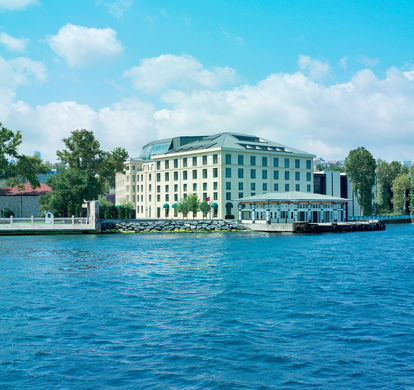
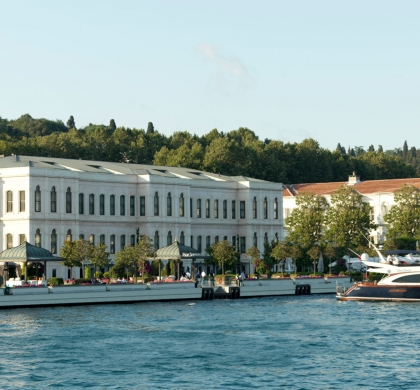
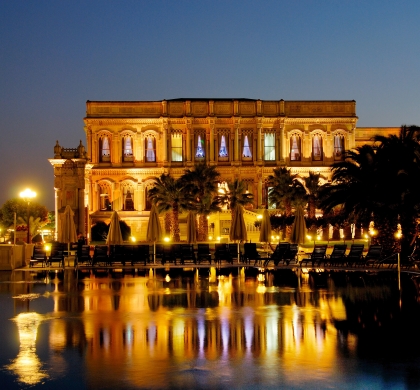
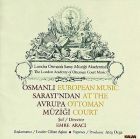
The London Academy of Ottoman Court Music, with Emre Aracı. Produced by Ates Orga,

The London Academy of Ottoman Court Music, with Emre Araci
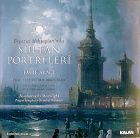
The Prague Symphony Chamber Orchestra with Cihat Askin, violin. Directed by Emre Araci and produced by Ateş Orga
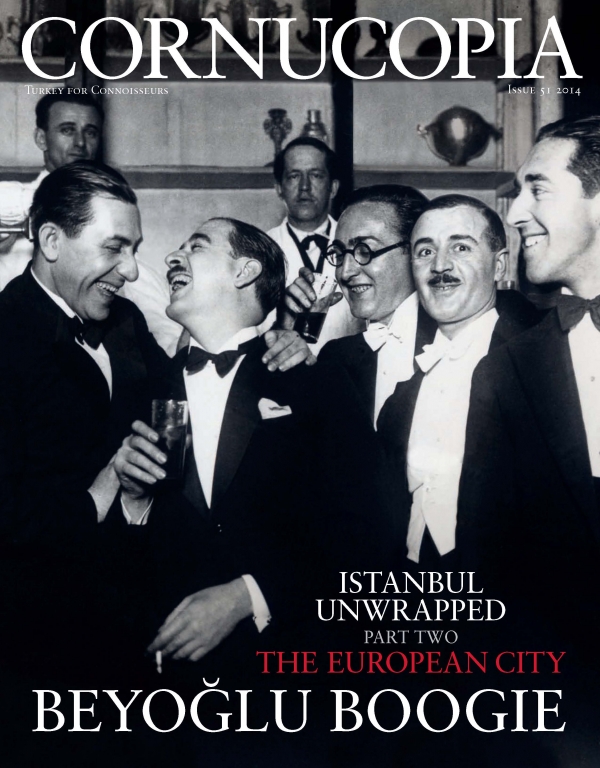
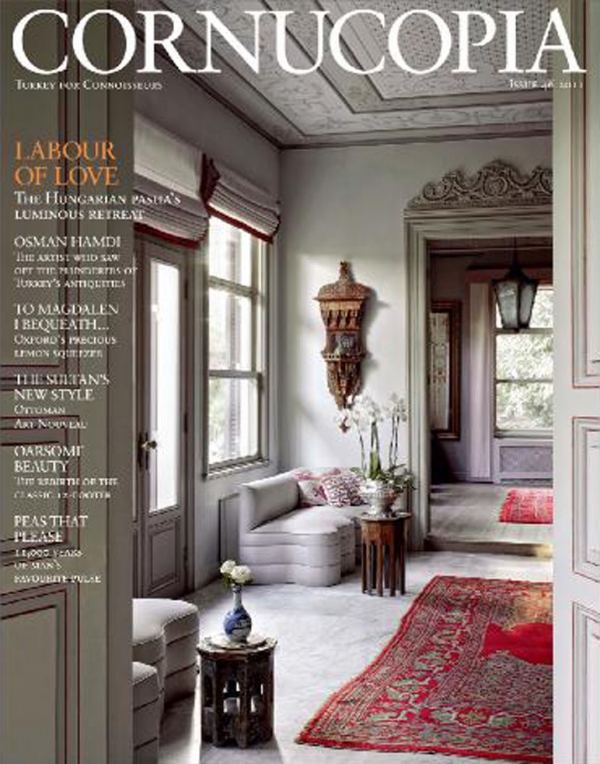
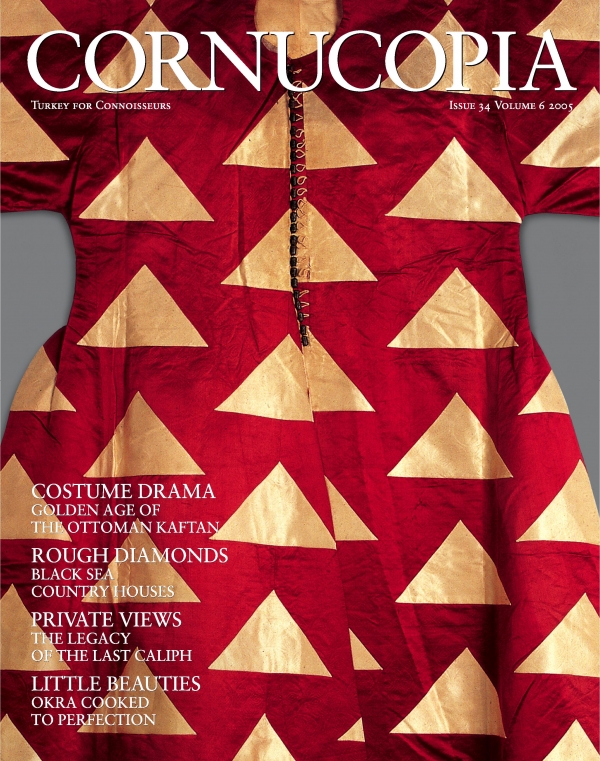
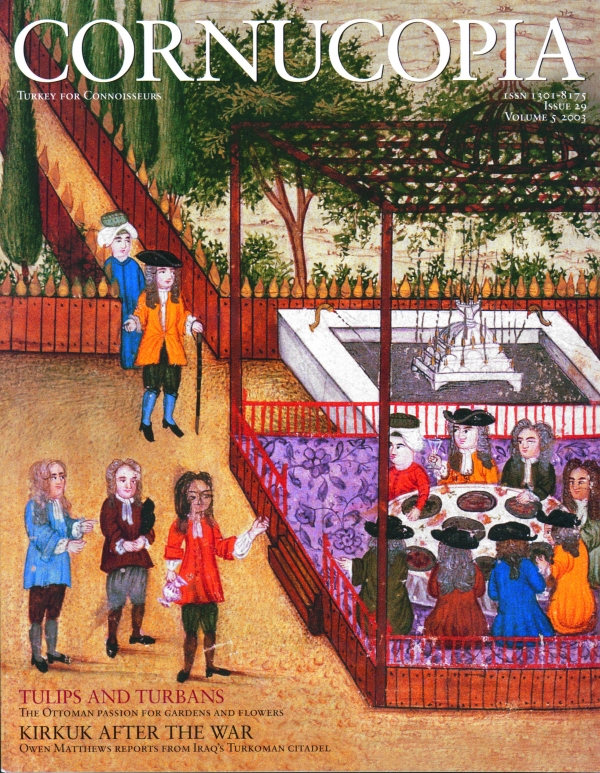
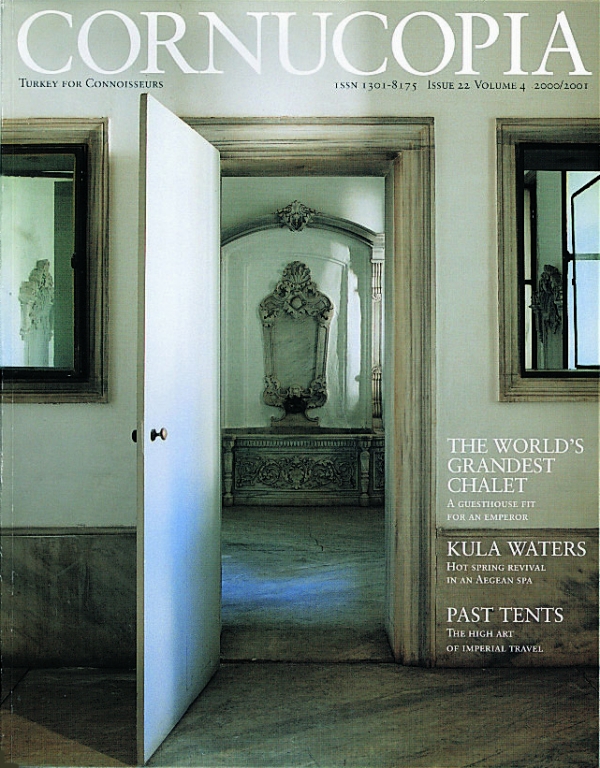

Cornucopia works in partnership with the digital publishing platform Exact Editions to offer individual and institutional subscribers unlimited access to a searchable archive of fascinating back issues and every newly published issue. The digital edition of Cornucopia is available cross-platform on web, iOS and Android and offers a comprehensive search function, allowing the title’s cultural content to be delved into at the touch of a button.
Digital Subscription: £18.99 / $18.99 (1 year)
Subscribe now